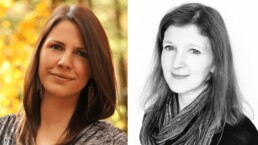The Test follows the story of Eric Frimpong, a Ghanaian immigrant who works as a maintenance worker at a large retirement center. Eric dreams of bringing his wife and three children to the US, as he hasn’t seen them in eight years. The final obstacle to their long-awaited reunion is passing the U.S. Citizenship test. An elderly couple, Jill and Carl, journey alongside Eric to tutor him to pass the 100-question test that will define his future.
Directed by Laura Waters Hinson and Claudia Myers, The Test is a short film that will tug at your heartstrings and bring a tear of heart and hope to your eye. In our exclusive interview, the filmmakers discussed the inspiration behind making the film, collaborating as co-directors, and ways that you can get involved in supporting legal immigration.
The Test is a short documentary that follows Eric Frimpong, a Ghanaian immigrant who works as a maintenance worker at a large retirement center as he studies to pass the U.S. Citizenship test. It’s an incredible story, and so touching that by the end I fully teared up. How did you both find this story? What did each of you connect with when deciding you wanted to make this film?
Claudia: The idea came from reading an article in the Washington Post. It was about the success of a volunteer tutoring program at a Virginia retirement community to help their staff members. Many of whom come from other countries become US citizens. This was in 2021 and there weren’t many feel-good stories at the time. Laura and I were moved by the way this story brought together two seemingly disparate groups: immigrants and the elderly. And, how each one provided a sense of purpose, belonging, and connection to the other.
Shortly after reading the article, I reached out to the retirement community (Goodwin Living) in the hopes of interviewing residents and staff members in their citizenship program. Truth be told, I started in search of a story to adapt as a screenplay. But in speaking with various people about their experiences, I became convinced the story didn’t need any fictionalizing. It was plenty powerful in reality, as a documentary. In this new form, I felt I would benefit from working with a collaborator. Since most of my work is in fiction, I reached out to my friend and American University colleague Laura Waters Hinson. Not only does she have an impressive career in documentary, but we share a similar sensibility. Laura had read the same article and been deeply moved by it, so very quickly we decided to work together.
What were the earliest conversations that you both had with each other regarding how you wanted to approach the storytelling, themes, and overall tone?
Claudia: We were on the same page from the start. Both of us are drawn to stories about groups that are often underrepresented or misrepresented in the mainstream media. In this case, it was immigrant workers and US retirees. Notwithstanding their differences, we wanted to highlight aspects of their shared experience. Both groups often feel marginalized while sharing the same need to be valued and accepted.
When we started, we weren’t just looking for compelling subjects, we specifically wanted to highlight the reciprocity in the relationship between retirees and staff members – where each provides a sense of purpose, belonging, and connection to the other. Ultimately, we knew we wanted to tell a hopeful and emotional story. We hoped that in some small way, it could counteract the prevailing negativity surrounding perceptions of immigration and aging in America.
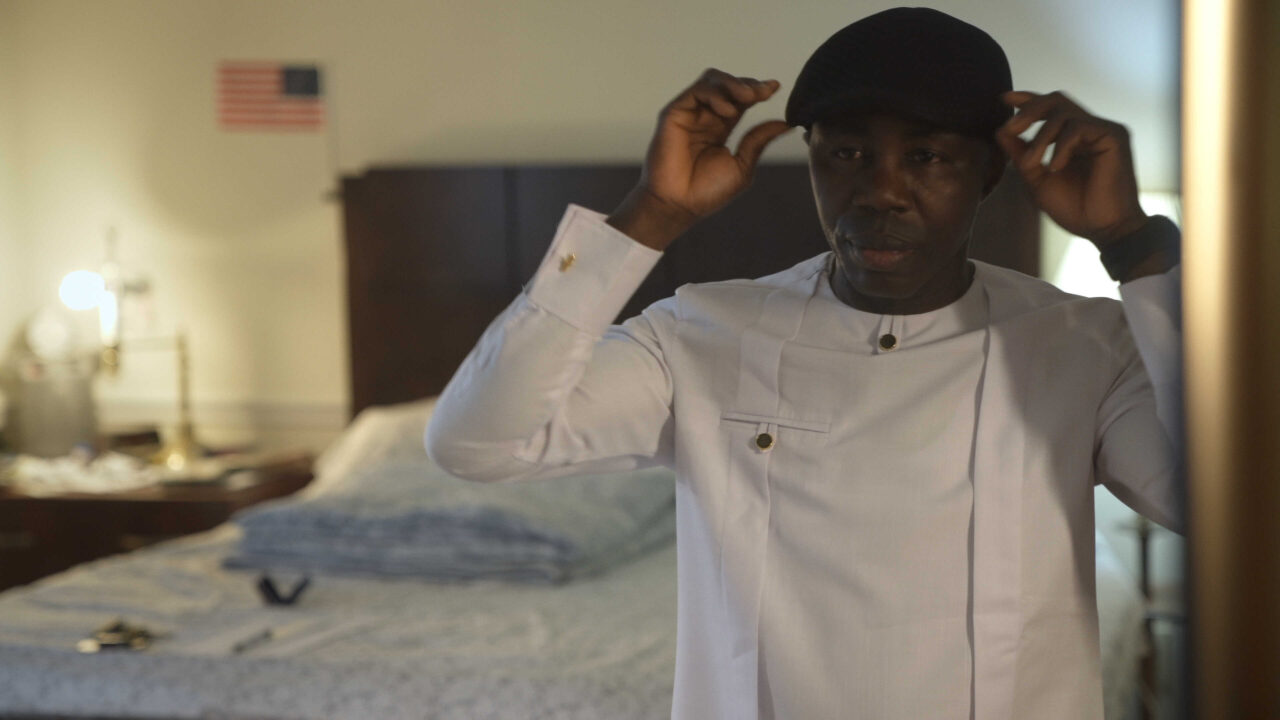
Were there any obstacles you both faced at the upfront or creative problems you had to solve while beginning pre-production? What were the first steps you took to begin making this from a logistical level?
Claudia: The biggest question we grappled with in the beginning was about the scope of the story. Initially, we wanted to make it a feature documentary within the retirement community. Such as, following staff members and their volunteer tutors as they prepare for the US citizenship exam. This was nice in theory but logistically and financially challenging. We also wondered about being able to sustain dramatic tension over the length of a feature. After weighing our options and speaking with several residents and staff members, we decided to narrow our focus to a single story and make it a documentary short. Keeping the film intimate and personal felt like the best way to get to the emotional heart of the story.
Seeing that you both share co-director credit on this film, what responsibilities did you both end up having? How do you find that you best collaborate?
Laura: Claudia and I worked closely together on all aspects of the film. We had a very similar vision for the storyline, which made it a really fun and collaborative process. We found that two brains were better than one at thinking through all aspects of the vision – casting, production, and editing process. In particular, it has been really helpful having two of us tackle various aspects of our education and outreach campaign, as well as dividing up travel and speaking engagements related to the film festivals we’ve attended.
We’ve been accepted at 16 festivals and counting, and I’ve loved having a co-director to share this journey with. At the end of the day, Claudia and I trust each other’s creative instincts and have a genuine blast working together, which has made co-directing a wonderful experience!
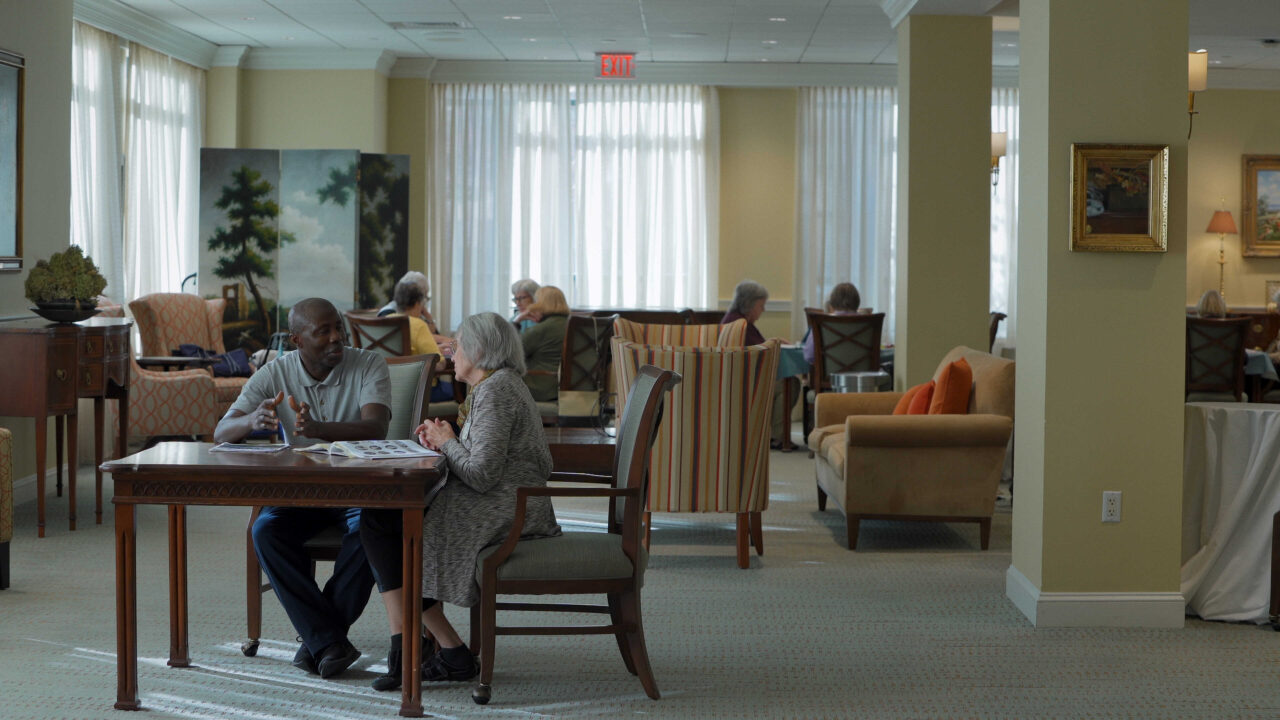
The main subject, Eric Frimpong, is such a great, good-hearted person and subject to follow. When did you decide he would be the film’s main subject? What was it like meeting him? Did you have any reservations or conversations about shooting him during such a stressful time of his life?
Claudia: We were immediately taken by Eric’s quiet confidence. He was also extremely open and honest – about the sacrifices he’s made, the challenges of staying connected to his wife and children while being apart for eight years, and the high stakes of acquiring US citizenship. Eric felt the pressure while also exuding a sense of calm. He was proud to share his story. The day we first met, I remember he offered to call his wife Sandra on WhatsApp to introduce me to her and his children. Their family bond was incredibly strong despite the years spent being apart. It was touching, and also inspiring.
The other subjects, Jill and Carl (Eric’s devoted tutors and retirement center seniors), are equally important in the film, both playing such a big part in Eric’s story. How did you meet them, and what conversations did you have about also including their stories on the screen?
Laura: We met Jill and Carl at the same time that we met Eric. They were a big reason that we chose to tell Eric’s story. Jill and Carl are simply the most lovely, kind, and generous people. And we knew their warmth and love would shine through in the film. They were also keen to tell the story on camera, as their relationship with Eric was deeply meaningful to them both. The fact that they had become “family” with Eric was such a beautiful testament to the power of the citizenship program, and we knew we had to make them part of the film.
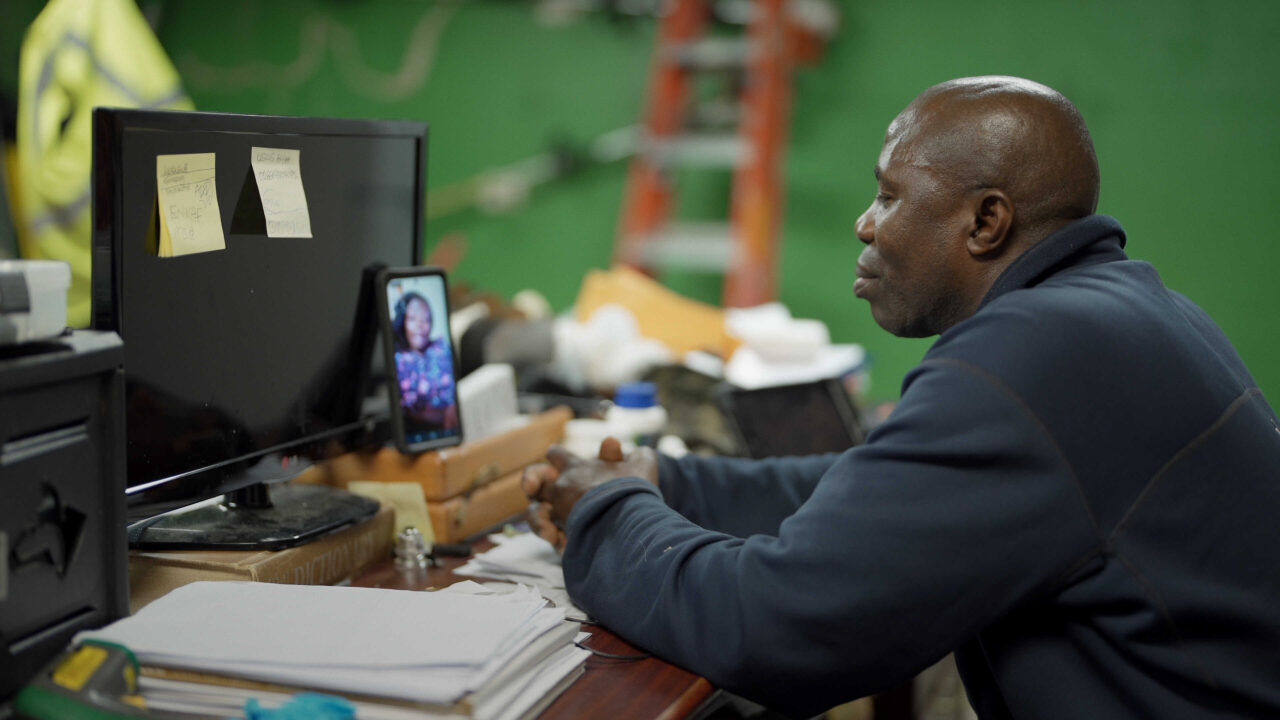
What were the most challenging parts of making this film that you both faced?
Laura: Like many filmmakers, the most challenging aspect of making this film was funding. Because Eric, our main participant, was in the middle of the citizenship process, we knew we didn’t have time to wait for traditional funding methods, like film grants, to come through. So, we worked with several talented graduate students in our graduate film program at American University and self-funded much of the film.
Did you have any new revelations about the film during editing, or once you finished, and shared the film with audiences?
Claudia: I don’t know if it was a revelation, but it has been thrilling to see how moved people are by Eric’s journey and his relationship with Jill and Carl. There’s nothing better as a filmmaker than knowing you told a story that resonates deeply with the audience.
What takeaway do you hope audiences will have after watching your film?
Claudia: I have many hopes for the film! That it will move people, that it will spark conversation, that it can help reframe the immigration debate in a positive light. Most importantly, I hope the film inspires some people to take action. Other retirement and assisted living homes could so easily replicate the citizenship program in the film. The sense of community, purpose, and belonging that the process creates is invaluable. This type of program offers a real-world, inexpensive solution to the loneliness epidemic among immigrant workers and older adults. It could also be a powerful tool in addressing the workforce shortage in aging services in America. I’ll just finish by saying, if people want to see all the ways they can take action after watching the film, they can visit our website: testdocumentary.com
Laura: I hope that viewers of The Test walk away with a newfound faith in humanity. The people portrayed in the film are some of the best human beings we’ve ever met in our lives. Their love for one another and their country is contagious. And we hope your heart lights up when you experience their story.
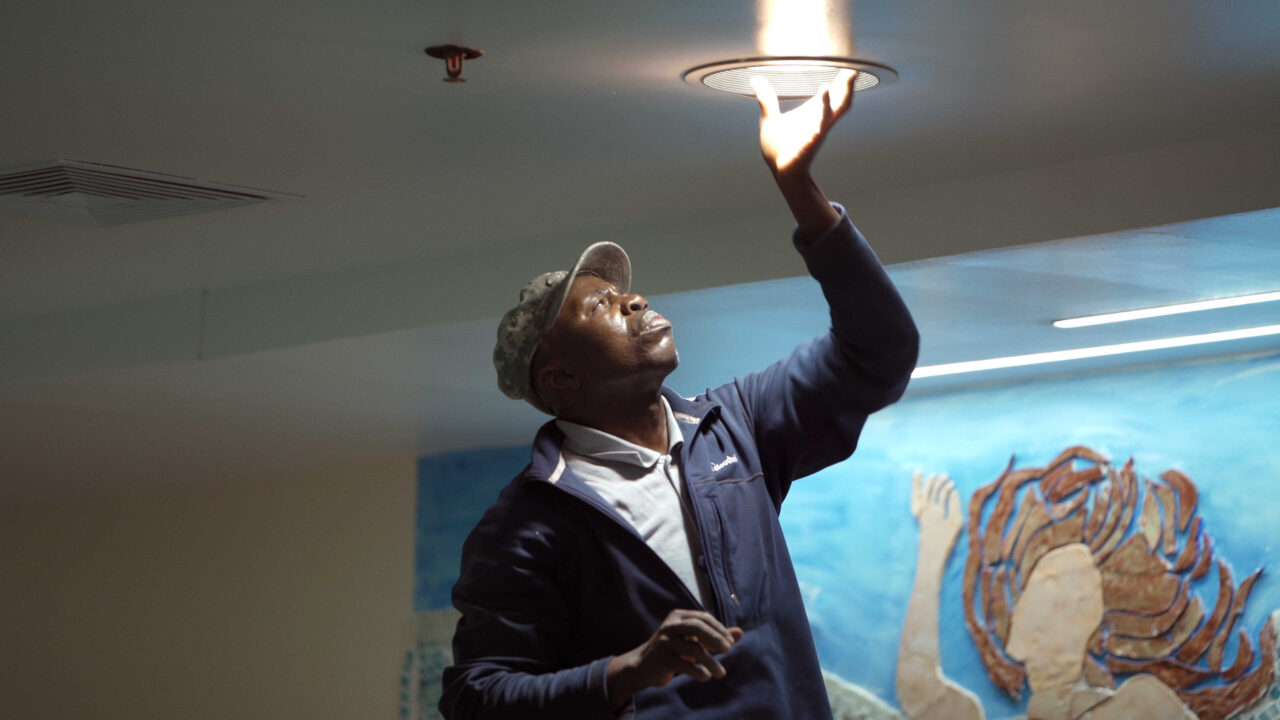
What is the future of this film, and do you have any future creative projects?
Laura: Our vision is that the film can serve as a bright spot here in this season of division, and political upheaval, and be a reminder of the power of the American Dream and the best of what it means to be a citizen in America. The film is currently on the film festival circuit, and it’s won best short documentary at two festivals already. We hope to continue to show the film far and wide through the film’s national outreach campaign, which we recently launched. Our goal is to start conversations about the loneliness epidemic in the US through creative means like the Goodwin House Citizenship program. We also hope the film can remind people of a positive story of legal immigration. A few ways that people can involve themselves are:
- Host a screening in your community!
- Start conversations that change perceptions and stereotypes around aging in America and legal immigration.
- Support Goodwin Living’s existing program or start your own!
- Learn more at: testdocumentary.com
Claudia: I’m very excited about the launch of our impact campaign to see how many people we can reach. In terms of future projects, I plan to return to fiction for a while. I’m currently developing several feature films and a TV drama about restorative justice.
What is one message that you would like to share with audiences about your filmmaking, and general outlook on life?
Claudia: In addition to being a filmmaker, I’m proud to be a faculty member in American University’s School of Communication film program. The motto in our division is “Media That Matters.” It’s something I strongly believe, in and try to impart to my students. I hope to tell stories that will impact and inspire people. As well as foster the idea that we are fundamentally interdependent and interconnected.
Laura: My leadership at American University’s Community Voice Lab informs much of my creative work. The Lab elevates the voices of marginalized community storytellers through collaborative filmmaking endeavors. It’s a vehicle for engaging students in my creative scholarship and is a vital aspect of my role as an educator. I’d love for people to check out my additional films on my website (www.LauraWatersHinson.com). As well as the Community Voice Lab site: https://www.american.edu/soc/community-voice-lab/

